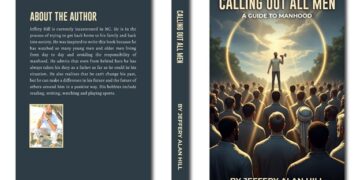Hailing from Manchester, United Kingdom, Sam Kahn a Professional Regulated Claim Adjustor owns and operates a regulated claims management firm. In addition to that, he conducts learning sessions in Jewish Studies with local teens and young married couples who are in need of sage, spiritual guidance due to a wide variety of challenges in their lives. In that respect, he has made a positive effect on numerous lives over the decades. A humanitarian and giver at his core, he is well-known locally for extending relief and assistance to financially disadvantaged families in his community. Samuel Kahn has also served as a governor and a trustee overseeing several schools and charities in the past.
Where did the idea for your business come from?
I grew up in a very business-minded family. Everything I heard as a child, at every juncture at home, weekends, evenings; it was always business, business, and business. I started my first business in school when I was 13 years old selling watches to friends and finding other trinkets and novelties that the kids wanted. Every craze that came about in school, I would try and source the product to be able to sell it, including food, Garfield, Gameboys—anything I could sell and make a small profit on, I would do so. So, it’s in the blood, and I’ve always been a trader at heart.
What does your typical day look like and how do you make it productive?
I write a daily to-do list. When I don’t finish every item on a given page, I highlight the ones that I have done and I transfer the ones that haven’t yet been achieved to the next page. It’s old-fashioned but it works. I use a Google diary with an alert system. I do not use a smartphone because it’s a distraction, although I do have WhatsApp installed on the computer. I have a Nokia flip phone which is capable of phoning and texting only, and that generates an extra two hours in my day where I’m not distracted by scrolling through things on the internet. I arise at 6am most days and go to sleep between 1 and 2 am. I only sleep three or four hours a night. During the day, I have back-to-back meetings, I have learning sessions, and I study every day. I go to the synagogue three times a day. I make sure to have family time. I guess you could call me a workaholic and ‘family-holic’.
How do you bring ideas to life?
Test, test, test, test, and test again. And then test again. I’m happy to invest in a test. I’m always looking for POGs—POG standing for pots of gold. It was a turning point in my life when I read Mr. Ferriss’ bestseller ‘The Four Hour Work Week’. Now, because of that book, I no longer have meetings for the sake of having meetings. I don’t need an audience anymore. I used to in order to appease my ego. It used to be the more staff in the meeting and the longer the duration of the meeting, the more I felt important. But all that does is waste time multiplied by eight people instead of two. Now I’m very selective about who I have meetings with and how long they are. I like to have agendas beforehand, I like to have action points afterward, I like to book the follow-up meeting straight away, and I’m a stickler for micromanagement. So, if you put all those things together, you tend to achieve.
What’s one trend that excites you?
Seeing a product succeed, or seeing a business that I’ve invested in or that I’m helping in any way succeed. It’s better than a million dollars. I get a real kick out of seeing that.
What is one habit of yours that makes you more productive as an entrepreneur?
I always ask for things to be checked a second time. Never take things on face value. Never trust anybody. Respect everybody—but never trust them. Trust has to be proven, loyalty has to be proven. Check, check, check, check, and check again. Most people are lazy and don’t bother to check.
What advice would you give your younger self?
Go slower. Don’t try to win the race because you’ll stumble over yourself, which I’ve done many times. I’ve got the tee shirts to prove it. Take things slow, look at what other people are doing, and don’t try to get somewhere faster just because you think it’s exciting.
Tell us something that’s true that almost nobody agrees with you on?
That the ancients had a better life without all the technology and distractions that we have nowadays. As an example, according to developments in medicine, we should all be living until at least 150 years of age because most of the body is replaceable and most illnesses are curable—including most cancers, dare I say it. What we do is we kill ourselves by eating ourselves to death, stressing ourselves to death, and losing the plot. So the ancients, people who lived 500 years ago or 2000 years ago, they had a much better quality of life. We can learn from that. We can actually include some of that in our day-to-day routine and have a better quality of life.
People always like that concept, but very few people are prepared to actually internalize it and give it a genuine try. I don’t just mean in theory, I mean in practice. One day a week, detoxify. Switch your phone off for one day a week—like we religious Jews have to do on the sabbath. You have to switch off your phone Friday afternoon from 4 o’clock and not switch it back on until 6:30 on Saturday night. Switch off your computer, switch off your phone. That’s the best day you’ll ever have in your life. Well, the first day, you’ll die emotionally and stress-wise, but by the third week, you’ll be my disciple.
As an entrepreneur, what is the one thing you do over and over and recommend everyone else do?
Try to play fair. Even if it costs you money. Try to put yourself in the other person’s shoes. Try to feel what they would feel if you’re about to do something that’s a bit sharp or a bit hurtful to their business. Sometimes I think about the fourth or fifth scene before the end in ‘Pretty Woman, where Richard Gere says “let’s go and build ships” instead of ripping the company to pieces and just plundering the assets. Sometimes you can build instead of destroying; you just need the guts to do it.
What is one strategy that has helped you grow your business? Please explain how.
Taking advice from people who have already done it, taking advice from competitors, ringing up and becoming mystery shoppers, and checking and testing things—instead of being a know-it-all, or thinking that you know and understand something before you’ve actually checked it out. Don’t be shy. Shy boys get no toys! If you don’t ask, you don’t get. Check, test, be inquisitive. There’s no such thing as a stupid question.
What is one failure you had as an entrepreneur, and how did you overcome it?
I trusted people and invested with them without keeping to the rules of checking, testing, and not trusting that I’ve now learned and already mentioned in this interview. Afterward, when those people didn’t give that same faith, loyalty, and trust back to me, it hurt a lot. How did I overcome it? By believing that the Grand Architect of the universe is the one pulling the strings and that they are just messengers. So, there’s no point in carrying the hate and the grudge around with you because that’s just negative energy and it will keep you from getting back up and trying again. However, there’s an old Arab expression: clever people learn from other people’s mistakes, mediocre people learn from their own mistakes, and fools don’t even do that. So I’m trying to become a mediocre person.
What is one business idea that you’re willing to give away to our readers?
Look to the service industries. COVID has shown us that we can live at home, work at home, and stay at home for lengthy periods. There’s an old English expression that an Englishman’s house is his castle. Everybody laughs at that nowadays, because people seem to think that if you haven’t been on three holidays or gone to an Air BNB, how can you cope? Well, the world did cope for the last year and a half. So, there is a lot of opportunity in the service industries—not just Amazon Prime, where you can get anything within an hour in most places in the world—but there are lots of niches and plays on Amazon and AirBNB where you don’t need to go up against the unicorns.
An example: there are very few alcohol delivery apps. Sometimes people are at home, it’s late at night—even without lockdown—they’re in their pyjamas, they’re watching Netflix, and they’d like some alcohol. If someone created an app where you can push a button and it would be delivered to your house, I think that would be a good idea for a business. UberEats and the like don’t cover alcohol because the alcohol shops close at 5pm or 7pm, depending on the area in question. So, set up a business like that, call it ‘Booze 2 U’ or something catchy, get the proper licenses, have a nice selection, and make sure your prices are okay. But you don’t need to be really cheap because as a service industry, people won’t mind paying an extra £2 for their favourite alcohol to be delivered to their doorstep at 2am. Go get some finance, get some drivers, people on bikes or scooters, and get to it.
What is the best £100 you recently spent? What and why?
Giving somebody that came to the house on Sunday £100. I have surgery every Sunday where people who need advice or finances can come to my house between 11am-2pm and get discreet advice and they can get either free loans or grants. A couple came over last Sunday. They have eight children at home, the husband and wife both work, and they can’t make ends meet. I told them they can come over every Sunday for £100. I felt like a million dollars afterward, because, to them, that £100 is like £10,000.
What is one piece of software or a web service that helps you be productive? How do you use it?
ZOHO is a management platform that allows the user to see exactly what’s going on with clients, staff, and business overall. The reports are very user-friendly, allowing a business manager to see exactly what they need in milliseconds without the staff feeling like they’re being micromanaged, which is not always conducive to empowering their feelings. It gives you all the information that you need, it gives you all the reports, you’re able to plan, you’re able to check—it’s amazing. It’s much better than its competitors. It’s not that famous, but it’s really turned around my effectiveness and my efficiency in my business life.
What is the one book that you recommend our community should read and why?
‘The Four Hour Work Week’ by Tim Ferriss. It’s a New York Times bestseller. Do not be turned off by the fact that it’s about his mail order business because there are secrets of life and time management contained in its pages. There are so many time management books and so many Tony Robbins-type gurus and seminar speakers—America is full of them. They’re all very inspirational, and you listen to them, and you read the books, and you have the “a-ha!” moment, but then you go back to your miserable life. And then there are advice books that look like textbooks, and most people pick them up and say to themselves “I’m not going to start reading this.” They are all very nice and detailed for those with intellectual minds, but once again, after that, you go back to the rat race, you go back to the hamster wheel, or you go back to being a goldfish swimming around and around in your bowl thinking that’s the whole world. This book, however, if you read it and internalize the messages it contains, you will achieve an extra two to three hours in your day every day to use in whatever way you like. Now, if you think about it, having an extra two or three hours a day every single day means that you will add about thirteen years to your life irrelevant of the age you actually die.
What is your favorite quote?
When I employ a high-level manager or a team leader and they ask me what the hours of the job are, my answer is “3 o’clock”. It’s a quote that I’ve invented. Then they say, “what do you mean 3 o’clock?” At which point I say, “if you’re going to run this business for me, and you need to take time off at 3pm and you’ve put things in place and everything’s ticket-y-boo and things are going well, you go and spend time with your family at 3 o’clock in the afternoon. You’re a manager. Off you go. Take responsibility. But if there’s a problem in the business that requires you, or a team member needs your urgent assistance at 3am, I expect you to take that call, as well. So, the hours are 3 o’clock.” That’s my quote.
Key Learnings:
- Work hard.
- Play hard.
- Give hard.
To know more about Samuel Nathan Kahn, a Successful Businessman in Manchester, visit his website now.





























